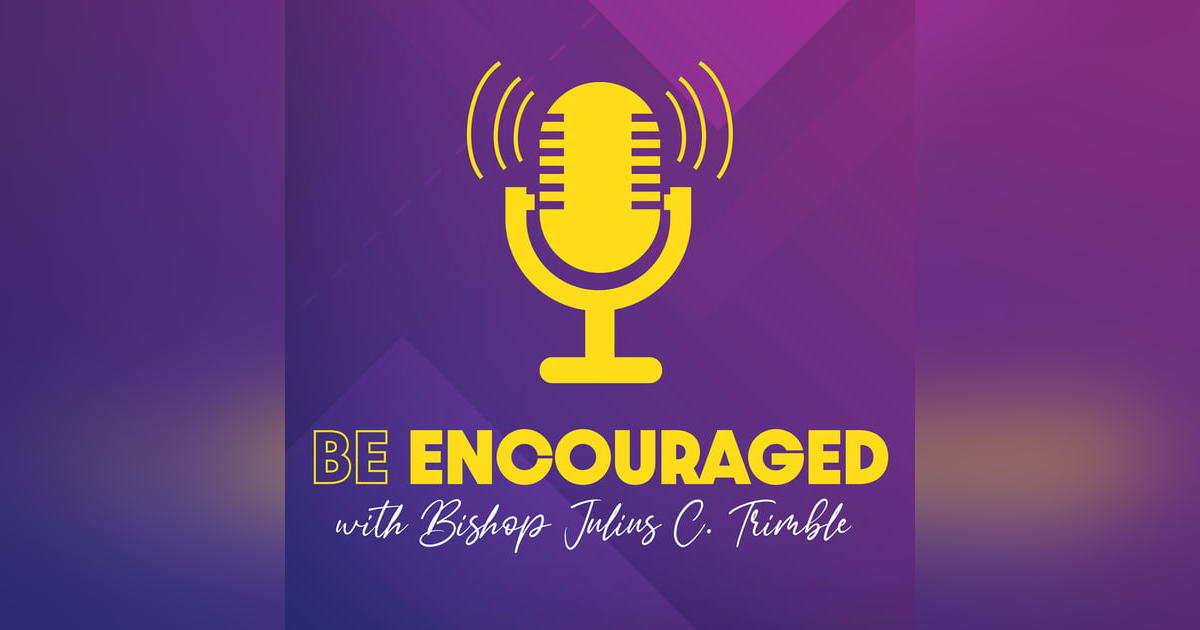Demanding Action Against Gun Violence with Tricia Owens and Heather Hilbert from Moms Demand Action

Bishop Julius C. Trimble is the Resident Bishop of the Indiana Area of the United Methodist Church.
Bishop Trimble has the personal mission to encourage all people with the love of Jesus Christ to rise to their highest potential. It is his commitment to his personal mission that led Bishop Trimble to create the “To Be Encouraged” Podcast along with co-host Rev.Dr. Brad Miller.
Bishop Trimble says, “I am compelled by Jesus to share with you an encouraging word or two about Jesus, theology, the Bible, the pandemic, the environment, racism, voting rights, human sexuality, and the state of the United Methodist Church.”
To Be Encouraged with Bishop Julius C. Trimble is to be published weekly and is available at www.tobeencouraged.com and all the podcast directories.
https://www.inumc.org/bishop/office-of-the-bishop/
Episode 049 of To Be Encouraged is part one of a two part interview with Tricia Owens and Heather Hilbert from the organization Moms Demand Action for Gun Sense in America. Part two is Episode 050.
Heather Hilbert did not grow up in the church. She came to faith as an adult after attending a class in a
local UMC church with a pastor who made sure that no question was off limits. She has served on staff
at St Luke’s UMC in Indianapolis as Director of Children’s Ministries and now works for the INUMC
conference as a Conference Assistant to the Southeast & West districts.
In early 2018, after the mass shooting in a local church in Sutherland Springs, TX and the mass shooting
at Stoneman Douglas High School in Parkland, FL, just a few short months later, Heather moved from a
participant in the gun violence prevention movement to a leadership position within Moms Demand
Action for Gun Sense in America. For the past 5 years, she has served in multiple roles for the Moms
Indiana chapter including Federal Legislative lead, focusing on and advocating for better gun policy in
the United States and particularly here in Indiana.
She spends many days at our Statehouse, giving testimony and meeting with legislators, while building
teams of advocates across the state. She is a gun owner who believes we can honor the 2nd Amendment
rights of Americans while also protecting our communities in better ways. She currently serves as the
Chapter Leader for Indiana and most recently led the first Moms Demand Action Advocacy Day at the
Statehouse since the pandemic began, training and advocating beside Moms volunteers from across the
state.
Her personal faith demands not only her heart but her voice and privilege for others. She is involved in
various projects and social justice causes including gun violence prevention, hunger & housing
insecurity, and LGBTQ+ rights.
Tricia Owens is a mom of two and works as a training systems designer for the federal
government. After her neighbor shot and killed himself in front of her and her husband, Tricia put
her trauma to work and began searching for significant ways to engage in gun violence
prevention. In early 2018, she joined Moms Demand Action, finding purpose in the meaningful
work of advocating for better, safer gun laws.
After joining the organization as a volunteer, Tricia quickly moved into several leadership roles
including Indiana Be SMART for Kids Lead and Indiana Survivor Membership Lead. Tricia
brings her professional excellence in training to her Moms work. She has given BeSMART
presentations to dozens of different community groups, including school administrations, police
departments, PTOs and more. This critical training, a 501c3 arm of Moms Demand Action,
trains adults about the importance of safely and securely storing firearms. Although she’s worn
many hats in the organization, her main passion in this GVP fight is keeping guns out of the
hands of children.
She currently serves on the Indiana state leadership team and is the Hamilton County, Indiana
Local Group Co-Lead where she leads, educates and engages volunteers from across the
county in the life saving work of Moms Demand Action.
Links:
https://everystat.org/ (this is all data collected by state/county, an AMAZING resource for conversations).
https://everytownresearch.org/ (More general research about various issues in the movement- ghost guns, red flag laws, background checks, permitless carry etc)
https://momsdemandaction.org/act/ (you can take direct action here and sign up to join Moms)
https://besmartforkids.org/ (Safe storage)
https://momentsthatsurvive.org/ (survivor stories, listeners can add their own stories)
https://onethingyoucando.org/#hero (suicide awareness & how to utilize red flag laws in your state to save someone's life)


